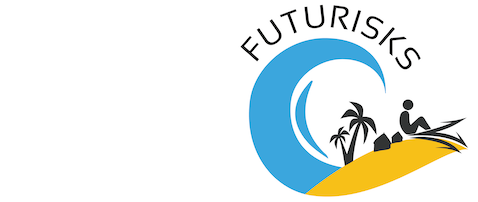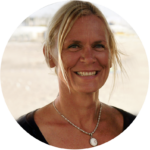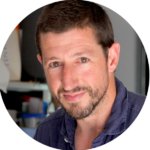Coordination | Virginie Duvat Project leader | Xavier Bertin Project co-leader | UMR LIENSs |
List of partner institutions and associate members
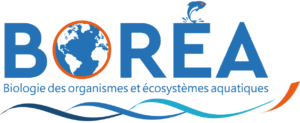
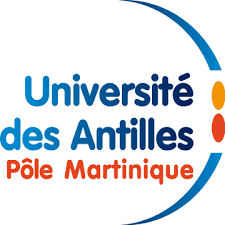 BOREA (UMR 8067 – Antilles), Biology of Aquatic Organisms and Ecosystems (affiliated to the National Museum of Natural History, the CNRS (8067), Univ. Caen Normandie, the Sorbonne Univ. Paris 6 Jussieu Pierre & Marie Curie, IRD (207) and the French Antilles Univ.) studies the ecology and biology of aquatic organisms and habitats in natural and constrained ecosystems. BOREA has a large fleet of field equipment, oceanological scientific instruments, diving equipment supervised by professional divers in hyperbaric certification, a boat and vehicles that will be useful to FUTURISKS, under the coordination of Franck Dolique (Prof.).
BOREA (UMR 8067 – Antilles), Biology of Aquatic Organisms and Ecosystems (affiliated to the National Museum of Natural History, the CNRS (8067), Univ. Caen Normandie, the Sorbonne Univ. Paris 6 Jussieu Pierre & Marie Curie, IRD (207) and the French Antilles Univ.) studies the ecology and biology of aquatic organisms and habitats in natural and constrained ecosystems. BOREA has a large fleet of field equipment, oceanological scientific instruments, diving equipment supervised by professional divers in hyperbaric certification, a boat and vehicles that will be useful to FUTURISKS, under the coordination of Franck Dolique (Prof.).
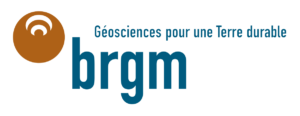 BRGM (Risk and Prevention Department) is a French public research institute in Earth Sciences, under the administrative authority of the Ministries of Research, the Ministry in charge of Environment, and the Ministry of Economy and Finances. The Coastal Risks and Climate Change unit and the Unit in charge of Space and in-situ Geophysics, which will contribute to FUTURISKS in the persons of Gonéri Le Cozannet & Jérémy Rohmer, are both part of the Risk and Prevention Department.
BRGM (Risk and Prevention Department) is a French public research institute in Earth Sciences, under the administrative authority of the Ministries of Research, the Ministry in charge of Environment, and the Ministry of Economy and Finances. The Coastal Risks and Climate Change unit and the Unit in charge of Space and in-situ Geophysics, which will contribute to FUTURISKS in the persons of Gonéri Le Cozannet & Jérémy Rohmer, are both part of the Risk and Prevention Department.
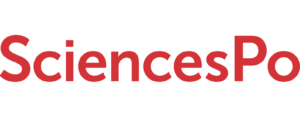 Sciences Po’s CERI (Center for International Studies) is a joint research entity between Sciences Po and CNRS (French National Research Center, UMR 7050). The research group on Environment and International Relations, and the ESG Paris Research Center are involved in FUTURISKS through Carola Klöck (Assist. Prof.).
Sciences Po’s CERI (Center for International Studies) is a joint research entity between Sciences Po and CNRS (French National Research Center, UMR 7050). The research group on Environment and International Relations, and the ESG Paris Research Center are involved in FUTURISKS through Carola Klöck (Assist. Prof.).
 CUFR Mayotte, created 10 years ago (~100 permanent staff, 1500 students), hosts a young and dynamic team of researchers whose project fits perfectly with the objectives of the « Ocean and Climate » PPR. The researchers involved in FUTURISKS, Aline Aubry, Matthieu Le Duff, Matthieu Jeanson (Assist. Prof.), who belong to ESPACE-DEV (Space observation, models & actionable science) lab., study these territories from a systemic perspective investigating their functioning, vulnerability to global change, and governance.
CUFR Mayotte, created 10 years ago (~100 permanent staff, 1500 students), hosts a young and dynamic team of researchers whose project fits perfectly with the objectives of the « Ocean and Climate » PPR. The researchers involved in FUTURISKS, Aline Aubry, Matthieu Le Duff, Matthieu Jeanson (Assist. Prof.), who belong to ESPACE-DEV (Space observation, models & actionable science) lab., study these territories from a systemic perspective investigating their functioning, vulnerability to global change, and governance.
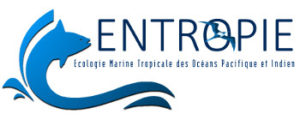 ENTROPIE (Écologie Marine Tropicale des Océans Pacifique et Indien; http://umr- entropie.ird.nc) gathers 60 permanent and 30 non-permanent staff from 5 research structures (Reunion & New Caledonia Universities, IRD, CNRS and IFREMER) involved in characterizing biodiversity related to tropical coastal and ocean habitats across the Indo-Pacific Region. ENTROPIE is involved in FUTURISKS through Maxime Duphil (PhD student), involved in benchmarking adaptation plans for storm surge mitigation using nature-based solutions in New Caledonia; Jérôme Lefèvre (research engineer), who applies a suite of codes designed to the study of extreme climate events (tropical cyclones, storm surges, tsunami and flash floods) using HPC resources at ENTROPIE; and Jérôme Aucan (researcher in physical oceanography).
ENTROPIE (Écologie Marine Tropicale des Océans Pacifique et Indien; http://umr- entropie.ird.nc) gathers 60 permanent and 30 non-permanent staff from 5 research structures (Reunion & New Caledonia Universities, IRD, CNRS and IFREMER) involved in characterizing biodiversity related to tropical coastal and ocean habitats across the Indo-Pacific Region. ENTROPIE is involved in FUTURISKS through Maxime Duphil (PhD student), involved in benchmarking adaptation plans for storm surge mitigation using nature-based solutions in New Caledonia; Jérôme Lefèvre (research engineer), who applies a suite of codes designed to the study of extreme climate events (tropical cyclones, storm surges, tsunami and flash floods) using HPC resources at ENTROPIE; and Jérôme Aucan (researcher in physical oceanography).
 Géo-Océan (UMR6538) is a joint research unit (UBO/UBS/IFREMER/CNRS) dealing with multi- approach geoscience laboratory covering geophysics, geochemistry, tectonics, sedimentology, and paleontology. The research involves observing, measuring, and modeling processes. Methodological and instrumental developments are carried out to the exploration of the oceans, from telluric coats to the superficial envelopes of coastal and offshore areas. The ODYSC team involved in FUTURISKS (France Floc’h, Assist. Prof.) specifically deals with the understanding of the processes underlying coastal dynamics as well as the resilience of coastal systems.
Géo-Océan (UMR6538) is a joint research unit (UBO/UBS/IFREMER/CNRS) dealing with multi- approach geoscience laboratory covering geophysics, geochemistry, tectonics, sedimentology, and paleontology. The research involves observing, measuring, and modeling processes. Methodological and instrumental developments are carried out to the exploration of the oceans, from telluric coats to the superficial envelopes of coastal and offshore areas. The ODYSC team involved in FUTURISKS (France Floc’h, Assist. Prof.) specifically deals with the understanding of the processes underlying coastal dynamics as well as the resilience of coastal systems.
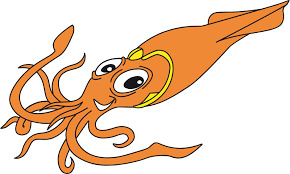
 Geosciences Montpellier (UMR 5243) is a CNRS (French National Research Center)-Univ. of Montpellier laboratory (8th French univ. in size), involved in marine geosciences, modelling, and oceanic engineering (Frédéric Bouchette, Prof., and Miguel Manna, Prof.). In practice, GLADYS strictly focusses on shallow water environments, including sand beach and coral reef systems, with a long history of projects and collaborations in the Caribbean and French Polynesia.
Geosciences Montpellier (UMR 5243) is a CNRS (French National Research Center)-Univ. of Montpellier laboratory (8th French univ. in size), involved in marine geosciences, modelling, and oceanic engineering (Frédéric Bouchette, Prof., and Miguel Manna, Prof.). In practice, GLADYS strictly focusses on shallow water environments, including sand beach and coral reef systems, with a long history of projects and collaborations in the Caribbean and French Polynesia.
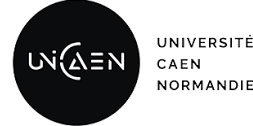 IDÉES Caen focuses on several research priorities of societal interest relating to the functioning and evolution of coastal and continental systems, particularly those affected by different types of dynamics, such as the consequences of climatic hazards (on environments as well as on populations and their activities), changes in uses and practices and their interactions with resources, or the contribution of new systems to environmental governance. Stéphane Costa & Olivier Maquaire (Profs.), Robert Davidson & Mohand Medjkane (research engineers) will be involved in FUTURISKS to bring expertise on climate change and its morphological impacts on coasts, as well as on risk reduction and adaptation.
IDÉES Caen focuses on several research priorities of societal interest relating to the functioning and evolution of coastal and continental systems, particularly those affected by different types of dynamics, such as the consequences of climatic hazards (on environments as well as on populations and their activities), changes in uses and practices and their interactions with resources, or the contribution of new systems to environmental governance. Stéphane Costa & Olivier Maquaire (Profs.), Robert Davidson & Mohand Medjkane (research engineers) will be involved in FUTURISKS to bring expertise on climate change and its morphological impacts on coasts, as well as on risk reduction and adaptation.
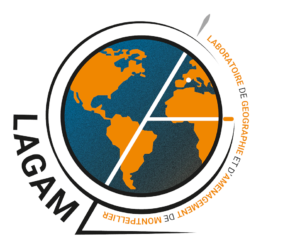 LAGAM (Laboratory of geography and spatial planning of Montpellier) hosts a team of geographers and cartographers (Stéphanie Defossez, Assit. Prof.; Monique Ghérardi, research engineer; Frédéric Leone, Prof.; Matthieu Péroche, Assist. Prof; Tony Rey, Prof.) interested in risks and disasters and focusing on hydrometeorological events, esp. in tropical areas. In FUTURISKS, this team will contribute to improving the understanding of climate events’ impacts and be involved in the design of crisis management and dissemination tools.
LAGAM (Laboratory of geography and spatial planning of Montpellier) hosts a team of geographers and cartographers (Stéphanie Defossez, Assit. Prof.; Monique Ghérardi, research engineer; Frédéric Leone, Prof.; Matthieu Péroche, Assist. Prof; Tony Rey, Prof.) interested in risks and disasters and focusing on hydrometeorological events, esp. in tropical areas. In FUTURISKS, this team will contribute to improving the understanding of climate events’ impacts and be involved in the design of crisis management and dissemination tools.
 LETG-Brest UBO (Littoral Environnement Télédetection Géomatique) is the team of the UMR LETG (CNRS 6554) at the University of Brest (UBO). The research activity focuses on the coastal environment and includes six main themes: land use dynamics, geomorphological dynamics of coastlines, coastal risks, human activities, modelling of human activities, and geomatics. Catherine Meur-Férec (Prof.) will bring to FUTURISKS her expertise on public policies, coastal risk management and climate adaptation.
LETG-Brest UBO (Littoral Environnement Télédetection Géomatique) is the team of the UMR LETG (CNRS 6554) at the University of Brest (UBO). The research activity focuses on the coastal environment and includes six main themes: land use dynamics, geomorphological dynamics of coastlines, coastal risks, human activities, modelling of human activities, and geomatics. Catherine Meur-Férec (Prof.) will bring to FUTURISKS her expertise on public policies, coastal risk management and climate adaptation.
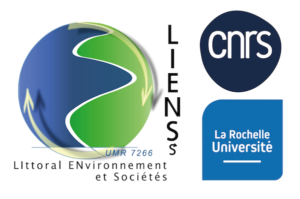 LIENSs (Littoral, Environment, Societies) is funded by the CNRS and La Rochelle University. Two out of its 6 research teams are involved in FUTURISKS, namely DPL (Physical Dynamics of Coastal zones), involving Xavier Bertin (senior researcher), Olivier de Viron & Guy Woppelmann (Profs.), Laurent Testut (research engineer), and Denis Dausse and Médéric Gravelle (engineers), and AGILE (Geographical Approach of Island & Coastal Environments), through the expertise of Nicolas Becu (senior researcher), Virginie Duvat (Prof), Agnès Michelot, Frédéric Pouget and Didier Vye (assist. Profs.), Natacha Volto (research engineer) and of three invited researchers, namely Maëlle Calandra (IRD), Alexandre Magnan (senior researcher at Cawthron Institute) and Lucile Stahl (lawyer).
LIENSs (Littoral, Environment, Societies) is funded by the CNRS and La Rochelle University. Two out of its 6 research teams are involved in FUTURISKS, namely DPL (Physical Dynamics of Coastal zones), involving Xavier Bertin (senior researcher), Olivier de Viron & Guy Woppelmann (Profs.), Laurent Testut (research engineer), and Denis Dausse and Médéric Gravelle (engineers), and AGILE (Geographical Approach of Island & Coastal Environments), through the expertise of Nicolas Becu (senior researcher), Virginie Duvat (Prof), Agnès Michelot, Frédéric Pouget and Didier Vye (assist. Profs.), Natacha Volto (research engineer) and of three invited researchers, namely Maëlle Calandra (IRD), Alexandre Magnan (senior researcher at Cawthron Institute) and Lucile Stahl (lawyer).
 LOPS (Laboratoire d’Océanographie Physique et Spatiale) is funded by Ifremer, CNRS, IRD, and University of Western Brittany. FUTURISKS will involve Swen Jullien and Guillaume Dodet, who conduct studies on wave climate variability, and coastal impact of extreme wave events. They are involved in projects in the Pacific (New Caledonia, French Polynesia) and Indian Oceans (e.g. Reunion).
LOPS (Laboratoire d’Océanographie Physique et Spatiale) is funded by Ifremer, CNRS, IRD, and University of Western Brittany. FUTURISKS will involve Swen Jullien and Guillaume Dodet, who conduct studies on wave climate variability, and coastal impact of extreme wave events. They are involved in projects in the Pacific (New Caledonia, French Polynesia) and Indian Oceans (e.g. Reunion).
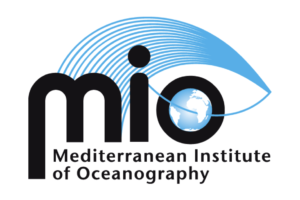 MIO (Mediterranean Institute of Oceanography) is a component of the OSU-Pytheas Institute and is under the joint direction of Aix-Marseille University, Toulon University, the CNRS and the IRD. Among the five MIO’s research teams, the OPLC team (Océanographie Physique, Littorale et Côtière, including Damien Sous (assist. Prof.) and Cristèle Chevalier who will bring their expertise to FUTURISKS, (researcher), aims to decipher the physical processes controlling ocean dynamics over a wide range of spatial-temporal scales.
MIO (Mediterranean Institute of Oceanography) is a component of the OSU-Pytheas Institute and is under the joint direction of Aix-Marseille University, Toulon University, the CNRS and the IRD. Among the five MIO’s research teams, the OPLC team (Océanographie Physique, Littorale et Côtière, including Damien Sous (assist. Prof.) and Cristèle Chevalier who will bring their expertise to FUTURISKS, (researcher), aims to decipher the physical processes controlling ocean dynamics over a wide range of spatial-temporal scales.
 SGNC (Geological Service of New Caledonia). As part of its mission to assess natural risks of geological origin, the governmental service of New Caledonia Industry, Mines and Energy Department (DIMENC), through the Geological Survey of New Caledonia (SGNC), manages the Coastal Observatory of New Caledonia (OBLIC). Myriam Vendé-Leclerc, who is the lead of this observatory, is involved in FUTURISKS.
SGNC (Geological Service of New Caledonia). As part of its mission to assess natural risks of geological origin, the governmental service of New Caledonia Industry, Mines and Energy Department (DIMENC), through the Geological Survey of New Caledonia (SGNC), manages the Coastal Observatory of New Caledonia (OBLIC). Myriam Vendé-Leclerc, who is the lead of this observatory, is involved in FUTURISKS.
 OSU-R (Observatoire des Sciences de l’Univers de La Réunion) is an observatory of the Sciences of the Universe supervised by the CNRS, the University of Reunion and Météo-France. One of the main missions of OSU-R is to ensure the operation of observation stations (atmospheric, forestry, hydrological, marine and coastal stations) thanks to the logistic and technical support of the UAR 3365 (Research Support Unit). Emmanuel Cordier (research engineer) is involved in FUTURISKS.
OSU-R (Observatoire des Sciences de l’Univers de La Réunion) is an observatory of the Sciences of the Universe supervised by the CNRS, the University of Reunion and Météo-France. One of the main missions of OSU-R is to ensure the operation of observation stations (atmospheric, forestry, hydrological, marine and coastal stations) thanks to the logistic and technical support of the UAR 3365 (Research Support Unit). Emmanuel Cordier (research engineer) is involved in FUTURISKS.
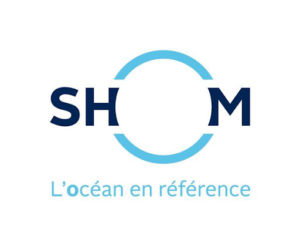 Shom is a public administrative institution under the supervision of the Ministry of the Armed Forces. Its mission is to understand and describe the physical marine characteristics and their interactions with the atmosphere, the seabed, and coastal environments, to forecast and ensure pertinent information for public and military applications. Three permanent researchers specialized in waves and coastal circulation, including Héloïse Michaud & Audrey Pasquet and Yann Krien (researchers) of the Shom research team are involved in FUTURISKS.
Shom is a public administrative institution under the supervision of the Ministry of the Armed Forces. Its mission is to understand and describe the physical marine characteristics and their interactions with the atmosphere, the seabed, and coastal environments, to forecast and ensure pertinent information for public and military applications. Three permanent researchers specialized in waves and coastal circulation, including Héloïse Michaud & Audrey Pasquet and Yann Krien (researchers) of the Shom research team are involved in FUTURISKS.
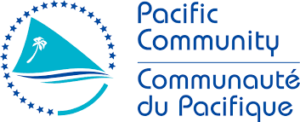 SPC (The South Pacific Community) is the principal scientific and technical organization in the Pacific region. This international development organization is owned and governed by 26 country and territory members. It is renowned for knowledge and innovation in areas like geo-science, public health surveillance, and on major cross-cutting issues: climate change, disaster risk management, food security. Jérome Aucan is an oceanographer, formerly at IRD, with over 20 years of experience in the Pacific, and is the head of the Pacific Community Center for Ocean Science (PCCOS). He will act as a liaison between SPC scientists and the FUTURISKS project when needed, and participate in fieldwork in New Caledonia where he has extensive experience.
SPC (The South Pacific Community) is the principal scientific and technical organization in the Pacific region. This international development organization is owned and governed by 26 country and territory members. It is renowned for knowledge and innovation in areas like geo-science, public health surveillance, and on major cross-cutting issues: climate change, disaster risk management, food security. Jérome Aucan is an oceanographer, formerly at IRD, with over 20 years of experience in the Pacific, and is the head of the Pacific Community Center for Ocean Science (PCCOS). He will act as a liaison between SPC scientists and the FUTURISKS project when needed, and participate in fieldwork in New Caledonia where he has extensive experience.
